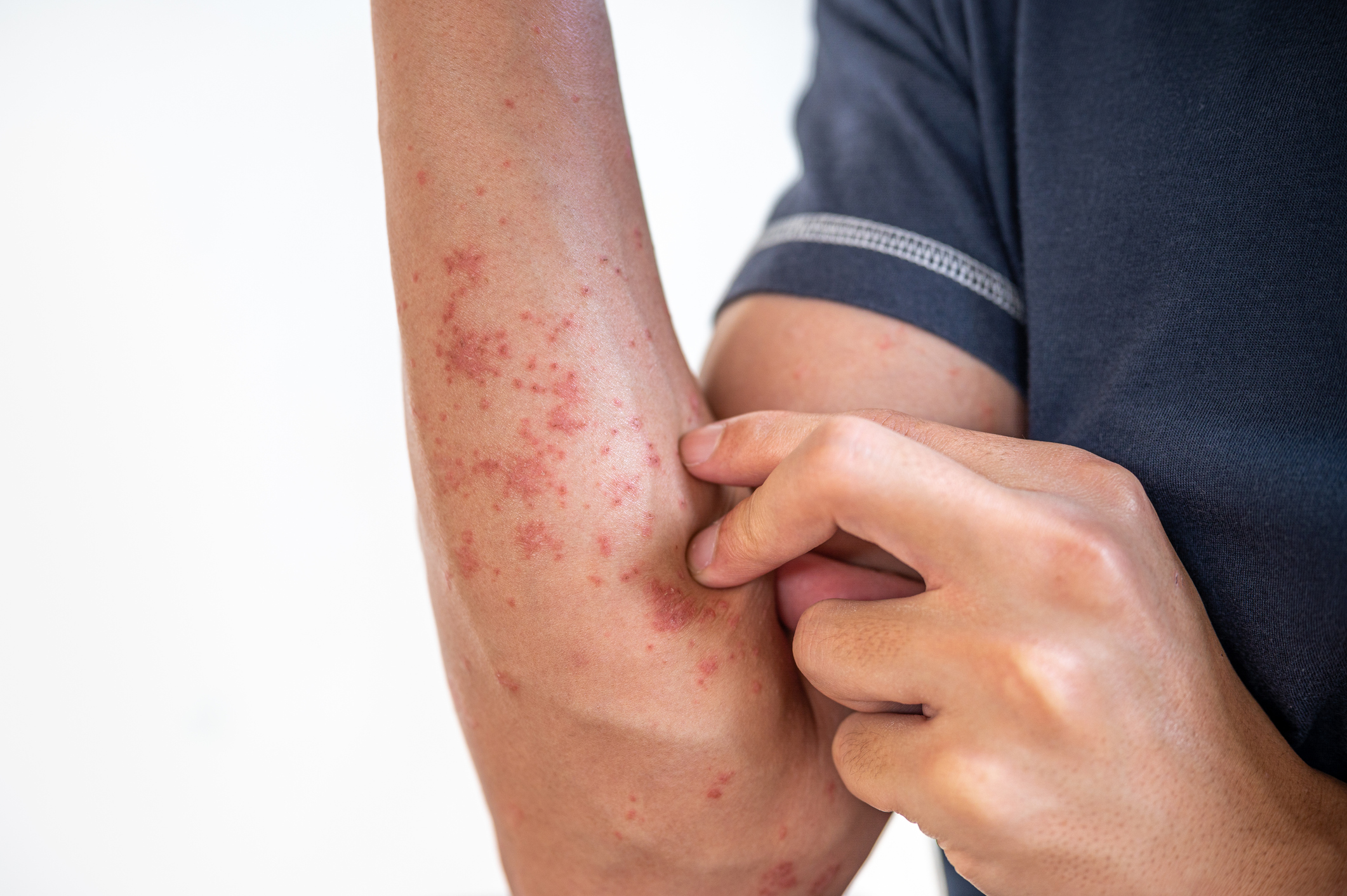What is Lichen Planus?
At Sanova Dermatology, we pride ourselves on delivering top-tier skin care through a combination of experience, education, and advanced technology. Our team of highly experienced physicians are dedicated to providing Lichen Planus treatment. We have convenient locations across Texas, including Houston, Pflugerville, Austin, Bee Cave, and Dripping Springs. We also serve Louisiana with locations in Metairie, Old Metairie, Uptown New Orleans and Baton Rouge.
It can be very concerning when bumps or rashes appear on the skin. This can be a sign of many things, some benign and some more dangerous. Lichen Planus often presents as small bumps on the skin, which can spread quickly and cause alarm to those affected by this disorder.
What Are The Symptoms of Lichen Planus?
The main component of this disease is the many small bumps that it creates on the skin. These bumps tend to be reddish-purple in color, and appear on the wrists, ankles, mouth and the genital area, although they can be more widespread. These bumps can come up in crops, with new ones appearing as the older ones dissipate. Patients often complains of dry/rough skin in the affected areas, itching, and even pain. The bumps can sometimes break down and form ulcers in the skin. Lesions on areas like the genitals are often more sensitive as discomfort and irritation can be caused by movement or sexual activity.

This condition is noted by the 4 P’s: Purple, polygonal [shape], pruritic [itchy], papules [raised above and not flush with the skin]. If Lichen Planus develops in the mouth or other mucous membranes, it can cause tender sores or white, lacy-appearing lesions. Finally, Lichen Planus can also affect the nails, causing this nails with ridges, crack and splits. Lichen Planus can cause a nail to stop growing.
Who Gets It?
Anyone can be affected by Lichen Planus. That being said, middle-aged individuals and women are more frequently diagnosed with the disease.
How Do You Get It?
Although many mistake this rash for an infection or a virus, Lichen Planus is not contagious. It is not clear what exactly does cause this disease, but it is known that you are not able to pass on or get this disease from another person. Lichen Planus is believed to be mediated by some sort of activation of the immune system, but the exact trigger is still unclear. There are however specific situations where Lichen Planus or similar symptoms have been linked to certain medications, allergy to fillings in the mouth, and hepatitis C virus infection.
How Is Lichen Planus Treated?
Treatments for Lichen Planus are designed to symptoms and speed resolution of this disease. Treatment options include topical and oral steroids, calcineurin inhibitors (such as Elidel or Protopic), phototherapy, oral retinoids and other immune suppressing medications. These therapies can help the skin stay clear, heal persistent and ulcerated lesions, and alleviate pain and itching.
What Is The Prognosis?
This disease tends to resolve over a number of months to a couple years. Each case is different, and there can sometimes be residual marks and spots on the skin from the Lichen Planus lesions. There are various laser treatments, ointments, and aesthetic procedures that can help to minimize or remove the residual signs of this disease – a comforting notion to those affected. Skin cancer has been noted to develop in some Lichen Planus lesions, especially those that are ulcerated.
Contact Us
If you would like more information, or if you would like to schedule a consultation with one of our experienced dermatologists, please click here.
